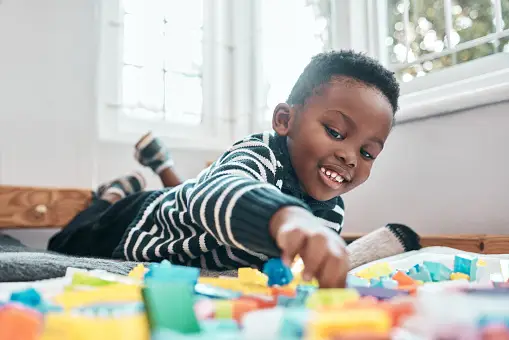Parenting is not just about caring for the physical growth of a child, it is also about enhancing mental capacity. Parents play the largest role in the character formation of their children and have the most impact on how the child turns out to be in life as he/she grows up. However, it is best to teach children values at a young age, so that it becomes a part of their personality as they grow.
It is important to note that children’s moral development is highly influenced by the social environment. This social environment mainly consists of family members, peers, and the entertainment industry such as the Internet, television, movies, video games, and music, which are having a greater effect on children and shaping their perspectives. Children who feel good about themselves are more able to resist negative peer pressure.
Teaching children good morals will protect them from potentially negative societal influences and lay the foundation for them to become good citizens.
Good morals help children to know the difference between right and wrong. When they do something wrong, and no one bothers to correct them, they’ll start to think that it’s perfectly fine to do it again and if it continues like that for a long time, the child might find it hard to stop the act.
10 Moral Values for Children to Lead a Great Life
Respect - Many parents make the mistake of teaching their children only about respect for elders, but that is wrong. Young children should learn to respect every individual irrespective of age, caste, creed, religion, ethnicity, beliefs, and difference of perspective. Everyone deserves respect, regardless of age or social standing. Respect is an essential moral value that your child must know about at a young age, as it plays an important role in his/her behavior around strangers and elders.
Honesty - From a young age, honesty should be instilled as one of the most important values for kids. Honesty is always the best policy, and your child must be encouraged to tell the truth regardless of whatever mistakes he/she may have committed. A child can nurture honesty by being truthful towards their parents, teachers, and others around them.
Confidence - Confidence equips a child to stand against unfair and unjust behaviors and attitudes. It helps them decide between right and wrong and then choose the right path. Your children must always be encouraged to speak up when they perceive wrongdoing, for their own benefit or for the benefit of others.
Perseverance - Perseverance is an act of putting persistent efforts to achieve a goal or accomplishment. Perseverance is the drive that helps you get past the hard stuff to get to what you want. Without perseverance, one won’t get far in life.
Compassion - Compassion is the feeling of love and care that you show towards others. It is a step ahead of sympathy since you not only feel other people's feelings but also strive to help them with their problems. The development of this positive emotion will help your child develop positive relationships with others.
Cooperation - Cooperation is an act of extending help to others to attain a similar goal that is often mutual. Working together as a family is the first step toward developing a sense of cooperation. Doing household chores together and listening to each other’s problems are some acts of cooperation that a family should follow. Such actions help a child to think of other people rather than him/herself alone.
Generosity - It plays a vital role in making your child a kind and socially responsible person. A generous child will be ready to give his/her time and help others. You can teach your child to share their belongings/resources with others who might need those things desperately. Encourage the child to share their toys with their siblings and cousins or donate some books, food, and clothes to the less privileged children. Whatever little they can do, let them do.
Self-control - Self-control plays a significant role in helping a child control his/her thoughts, words, actions, and emotions. A child that has self-control does not act without forethought and avoids reacting in rage. Cultivate self-control by promoting the value of patience and self-regulation.
Gratitude - Gratitude is the act of appreciating and being thankful for what you have. It begins with contentment. Cultivate contentment and gratitude in your child by teaching them to be thankful for what they have in life.
Responsibility - For a child to be successful, parents need to help them understand that whatever happens in their life or career, the best path to follow is always to take responsibility for the outcomes, both positive and negative, which are the result of their efforts. If they make a mistake, we must encourage them to see their mistake as a self-created learning experience. Taking responsibility allows a child to learn the value of humility and to be flexible enough in their thinking to change their approach whenever necessary.
Ways to Inculcate Good Moral Values in Your Kids
Practice What You Preach - Children learn from the people around them, so in order to teach your kids good values, you must be a role model to your child. You may verbally explain numerous values, but your kid will only pick up the ones you showcase through your own behavior.
Narrate Personal Experiences - Personal experiences are like stories, and all kids love hearing stories. Share stories from your own life, where abiding by moral values had a positive experience in your life, and your child is bound to understand better.
Reward Good Behaviour - Reward your child by praising and giving gifts. Rewards are positive reinforcements that work incredibly well in shaping children.
Monitor Television and Internet Use - There’s no escape from the television and internet, but you can definitely monitor what your child watches. Make sure the show promotes good values and morals and is appropriate for his/her age.
Protect Your Kids from Peer Pressure - Keep a close watch on the kids they interact with and the kind of games they play. Above all, you need to remain alert to unexpected behavior and thought processes that they can pick up from other children. Make sure you open lines of communication so your kids talk to you about the time they spend with peers. Welcome questions about situations they don’t understand or are uncomfortable with.
In conclusion, the way children learn morals is by observing what their parents do. Be a good example for your children to follow when it comes to morality. If you try to teach your children good morals while exhibiting less-than-exemplary morals yourself, you send a mixed and confusing message.










Comments